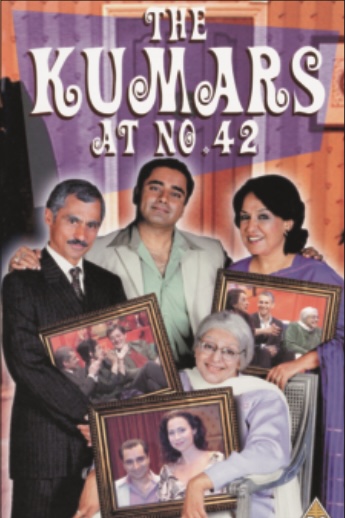BY AMBIKA BEHAL
Through the centuries, Hindus have periodically donated a part of their genius to the Western world. Mathematics, medicine, astronomy and, more recently, yoga, meditation, ayurvedic medicine and spicy food have all found a place in daily Western culture. So when you hear someone yelling “Badmash!” (meaning naughty, also, hooligan) on the street in London, don’t automatically assume it is just an Indian vocalizing his Hindi speaking skills. In fact, with no Indian in sight, you might hear words such as kunjoos (miser), bandar (monkey, mischievous minor boy) or gora (white male) being added to perfectly English conversations.
Collins recently released its seventh edition English dictionary, complete with an array of definitions for “Hinglish ” words. The word Hinglish is itself used in two senses. In England, it means the Hindi words coming into English, while in India, it is the hybrid language created when Hindi speakers intersperse English words with Hindi, such as, “Pitaji, time kya hua hai?” ( “Father, what is the time right now?”). The loanwords entering English are often those used when the Hinglish is almost all English, except for a choice term or expression in Hindi, such as, “I have hazaar things on my mind right now.” ( “I have thousands of things on my mind right now.”)
The general public in the UK has been introduced to Hinglish by mainstream television shows such as “The Kumars at Number 42, ” “Silver Street ” and, most famously, the comedy “Goodness Gracious Me ” which coined the popular (and vulgar) phrase, “Kiss my chuddies.”
Jeremy Butterfield, Editor-in-Chief of Collins Dictionaries, explained to Hinduism Today the reason for including so many loanwords in the new edition. “We thought that the increasing importance of India on the world stage and as a growth economy was being reflected in the spread of Indian words round the world.” Not all the words are Hindi words.There is a slight Punjabi flair owing to the boisterous Punjabi population inhabiting Britain, so it is no surprise when words such as changa (good) and chuddie also appear.
The project to incorporate South Asian dialect in the Collins Dictionary was assisted by teacher B. K. Mahal, author of The Pocket Guide to Being an Indian Girl. Mahal said that this evolution in language is assisted by the fact that “English is a mongrel language ” being tugged at by the multi-culturalization of Britain. “Six-year-olds in my class aren’t using Hinglish words because it gives them credibility, ” she said, “They use it to express their world. If your world is a concoction of languages, then no doubt in everyday conversation these languages will dance and have accidents with one another.” The majority of English words are of foreign origin, drawn from 120 different languages.
The Oxford English Dictionary first adopted Hindi words when they made their way into general use as British colonialists returned from India with new vocabulary during the 18th and 19th centuries. Shampoo, bungalow, jungle, mantra, pundit and catamaran are some of the words that entered the language in those days.
Juliet Field, Senior Editor of the Oxford English Dictionary, who noted that badmash is already in the dictionary, explained the dictionary’s guidelines. “Words from these languages [of India], and, indeed, from any other foreign language, are included in our dictionaries when we have collected enough evidence that they are understood, used and established in English.”
Several Hinglish words are common insults. Mahal explained, “It is a universal truth that the first words any adolescent learns from a new language are often of a profane or derogatory nature. Much of this is attributed to the way in which adolescents teach each other new words.” Hinglish integration into English appears to be following in the footsteps of Irish, French and German–entering first as insult words and slowly working their way in.
Among the Hinglish words that feature in the Collins Dictionary are kutta and kutti (dog and she-dog–both of which can be insults), haramzaada and haramzaadi (obnoxious male or female), yaar (friend), changa (an expression of approval or agreement, from Punjabi), namaste (greetings–the only one of these terms used in America so far), motu (fat person), rasmalai (sweet, also, an attractive woman). Another set are English words adapted to Hindi and returned. These include aunti-ji, uncle-ji, freshie (a recent immigrant) and filmii (Bollywood style drama).
So, when popular English television chef Jamie Oliver yells, “Pukka!” (literally, “cooked, ” but meaning “okay ” “finished ” “complete “) at the final taste of his cooking, the Hindi-speaking population can cheer, because English has once again adopted a useful term.


